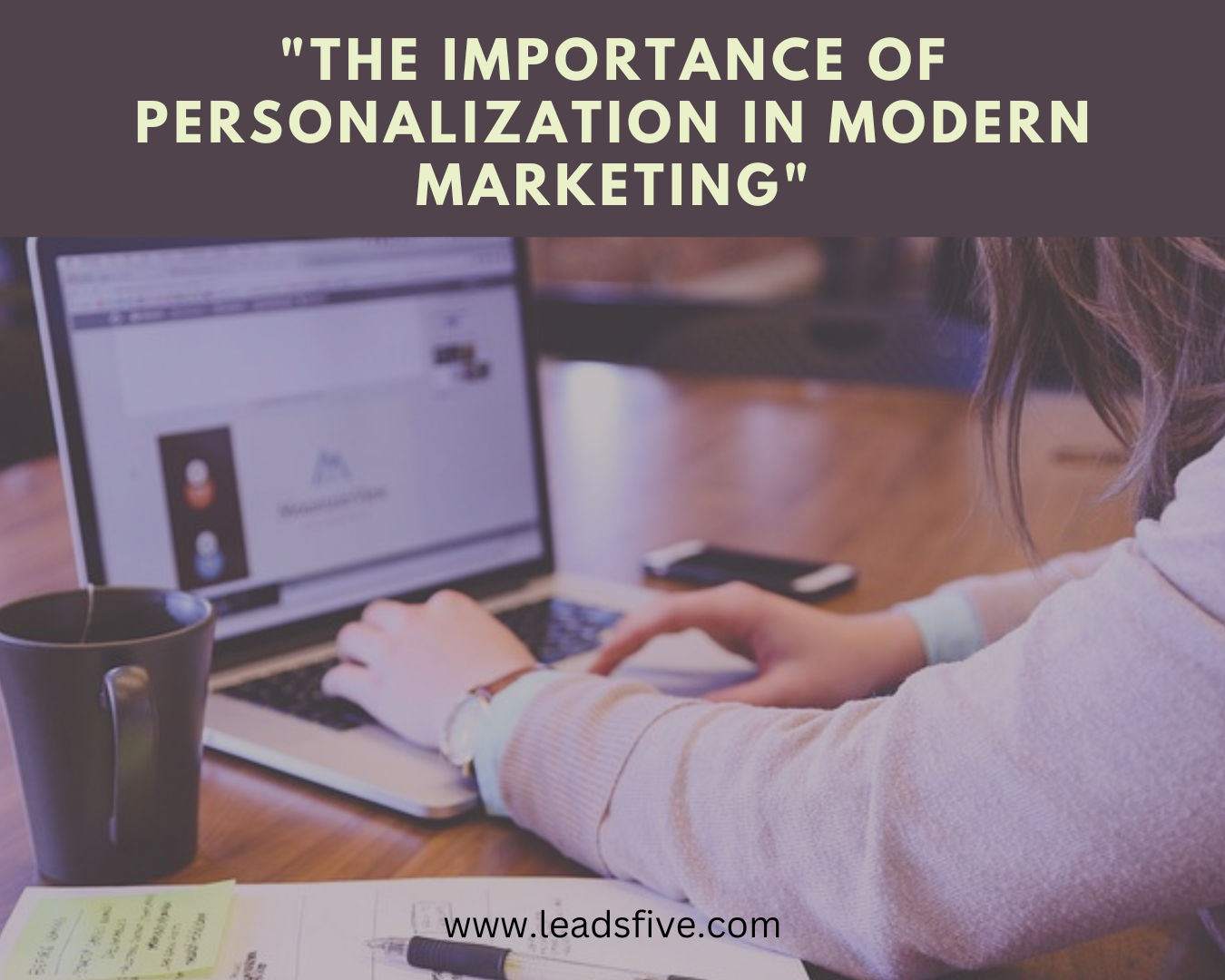The importance of personalization in modern marketing
Personalization in modern marketing is becoming increasingly important as consumers demand more relevant and tailored experiences. By understanding and segmenting their target audience, businesses can create targeted marketing campaigns that resonate with specific groups of people.
One way to personalize marketing efforts is through the use of data and analytics. By collecting information on consumer behavior, demographics, and preferences, businesses can gain insights into what drives their target audience and tailor their marketing efforts accordingly. For example, if a business knows that a particular group of consumers is more likely to respond to a certain type of content or offer, they can create a campaign specifically for that group. This can also be done through segmentation, by breaking the target audience into smaller groups that share similar characteristics or behaviors, this allows the business to create specific campaigns for each segment.
Another way to personalize marketing is through the use of technology, such as personalization software and artificial intelligence (AI). These tools can analyze customer data and create personalized content, offers, and experiences in real-time. For example, a website using personalization software can display different content to different users based on their browsing history, location, or other factors. AI can also be used to predict customer behavior, which can help businesses make more informed decisions when it comes to personalizing their marketing efforts.
Personalized marketing can also be achieved through a variety of channels such as email, SMS, social media, and website. Email marketing campaigns can be personalized by addressing the recipient by name or by sending targeted messages based on their interests and previous purchases. SMS can also be personalized by sending location-based deals or offers. Social media platforms like Facebook, Instagram, and Twitter offer a variety of targeting options that allow businesses to reach specific audiences with tailored content.
Personalization can also be applied to the customer experience, such as through personalized customer service or product recommendations. Businesses can use customer data to provide personalized support, such as resolving a customer's issue more quickly or providing tailored product recommendations. Personalized customer service can be done by including the customer's name in the conversation, and addressing their specific issue or concern. Product recommendations can also be done by showing products that are similar to what the customer has purchased before, or products that are popular among customers with similar characteristics.
Personalization not only improves customer satisfaction but also increases conversions and revenue. Personalized marketing campaigns are known to have a higher open rate, click-through rate and conversion rate. A study by Epsilon found that personalized email campaigns have an open rate 29% higher than non-personalized campaigns. Personalized product recommendations can also increase revenue by up to 30%.
In conclusion, personalization in modern marketing is crucial for businesses looking to connect with their target audience and drive results. By using data, technology, and a variety of channels, businesses can create personalized experiences that resonate with their audience, increase engagement, and drive conversions. Personalization is not just about addressing the customer by their name, it's about understanding the customer's needs, preferences, and behavior and using that information to create a personalized experience that will make them feel valued and appreciated. In today's digital age, where customers have access to a plethora of options, personalization is the key to standing out and building long-term customer relationships. It is important for businesses to invest in personalization, as it will not only increase customer satisfaction but also drive business growth.






 .
.